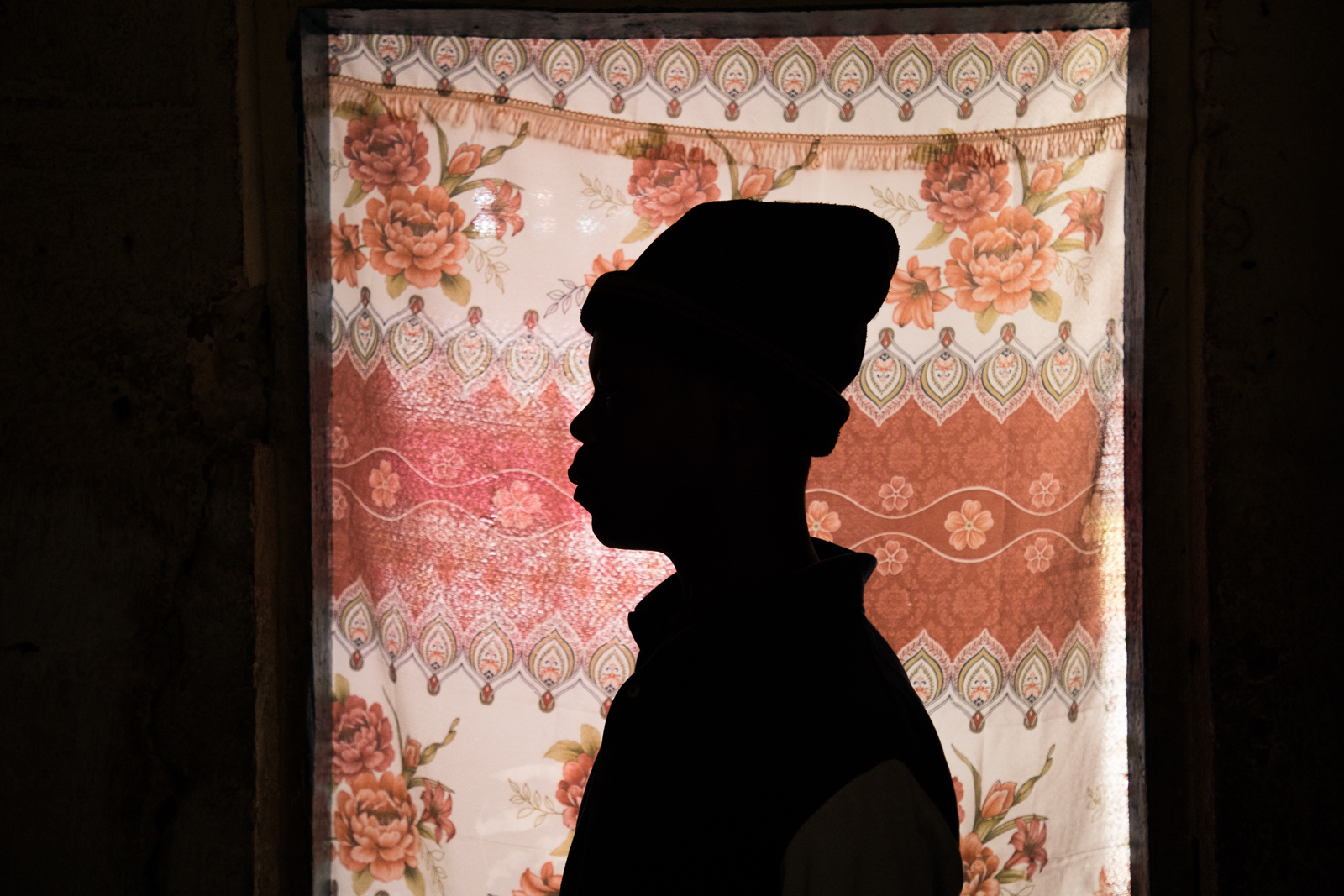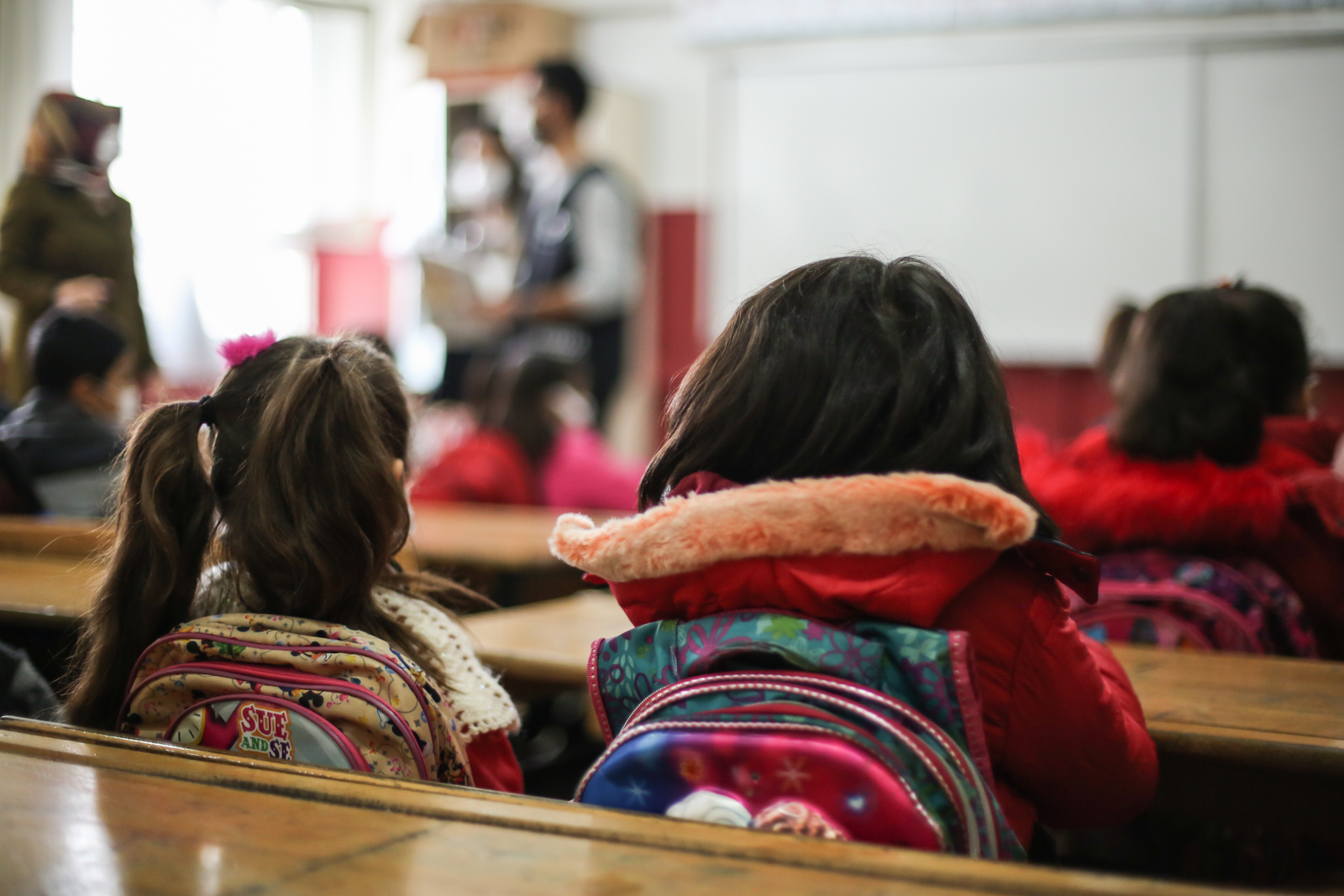
Girl soldiers just want to go back to school in DRC
Child soldiers, Children in conflicts, Education in emergencies, Girls' education, Right to education
Almost half of the girls interviewed for a major report said they had joined armed groups after their families could no longer afford school fees.
Young girls who have left armed groups in eastern Democratic Republic of Congo are desperate to get back into education, according to a report.
But the girls – many of whom were sexually abused by militias – are often rejected by their families when they return home, said Child Soldiers International.
And more than one third of interviewees said that since fleeing violence they had not received any help whether material, medical, psychosocial or socio-economic.
The report by the organisation – called What The Girls Say – was the result of interviews with 150 girls in DRC.
A decades-long conflict in the country has created thousands of underage soldiers with around 40% of them girls.
Between 2009 and 2015 only 7% of the thousands of child soldiers released in DRC were female but many others escaped independently.
Almost half of the girls interviewed by Child Soldiers International said they had joined armed groups after they could no longer afford school fees.
One 15-year-old girl called Rutshuru said: “I was chased out of school all the time. We heard that we could get money there (in the bush). I went because I wanted to get enough money to go back to school.”
A 16-year-old girl called Rubari said: “I was pushed out of school because my parents could not pay, so instead of roaming aimlessly in town it was better to go and help them in the bush.”
Local people involved in child protection stressed the importance of school as a means of preventing children from joining an armed group.
One said: “Not attending school is at the core of child recruitment.”
Most boys and girls have to pay for school in DRC and the costs varies, according to Child Soldiers International.
Parents and children have to pay money to cover teachers’ wages, and school operating and administrative expenses – on top of having to buy a uniform, shoes and exercise books.
Many girls in DRC work hard in fields to be able to pay school fees themselves – but even then many struggle to afford education.
Girls told Child Soldiers International that they keep trying to join classes even after they have been repeatedly sent home. This desire for education was the same with girls who returned home after spending time with armed groups.

“My wish is to return to school to become responsible one day and help others who have experienced problems like me,” an 18-year-old girl said.
A 17-year-old girl added: “I would prefer to go back to school to be valued like other girls.”
One of the girls interviewed – now 16 – was kidnapped by the Lord’s Resistance Army (LRA) during an attack on her school in 2008.
Anourite was eight at the time. The LRA held her captive for four years, during which time her role was to carry the babies and the group’s belongings, “like all girls too small to serve men”.
She said: “They killed, we did not know why. We were beaten, even though we were only children. At first I said: ‘I want to see my family,’ and they beat me even more. So I stopped crying. I had my first period in the bush. I managed using leaves.”
Anourite was physically tied to an LRA fighter during an attack by the FARDC when she was struck by a bullet in the leg: “It was bleeding a lot. I thought: ‘I’m dying’. The fighter unchained me and I lost consciousness. The FARDC found me the next day and took me to the hospital.”
Today Anourite has a pronounced limp. She wears a homemade prosthesis made of wood, cardboard and wire to compensate for the shortening of her leg. The prosthesis is uncomfortably heavy, and falling apart.
“My father repairs it from time to time, adding wood and cardboard,” she said.
Anourite told Child Soldiers International that she has received no support since her return, nor any medical assistance for her disability.
She would like to go to school but her family does not have the funds.
Since her disability prevents her from working in the fields, she is unable to contribute to the cost of her own schooling.
The majority of girls interviewed said they were sexually abused by the armed groups and for many this was a daily event.
“Sometimes I didn’t even know the name of the man who abused me at night,” a 16-year-old girl said. “I wanted to escape but saw what they did to those who tried… I was too scared.”
We were shocked to see that, after having been subjected to serious and prolonged physical and sexual abuse, many girls are then rejected by their families and communities. Sandra Olsson, programme manager at Child Soldiers International
For some, sexual violence was itself the motivation to join militias.
A 19-year-old-girl told researchers: “I left [to join the Mai Mai] after they raped my mother in front of all of us, even my father. I felt shame, pity, anger. One day I decided to take up arms to avenge my mother.”
Despite the daily violence of life with the armed groups, many girls reported that returning home to rejection and stigma – despite being survivors of sexual violence – was the source of their deepest emotional suffering.
Some were unable to bear rejection from family and friends upon returning and even choose to re-join. Others simply do not risk attempting to return home at all.
“It is better to die there than come home and be rejected,” a 16-year-old girl explained.
“Not two days goes by without neighbours making us feel we have known men,” a 14-year-old girl said. “We are not allowed to associate with their daughters.”
A 16-year-old girl added. “Every girl from the bush, the community points to her and says: ‘Watch out: HIV.’”
Sandra Olsson, programme manager at Child Soldiers International, said: “The recruitment of girls by armed groups in DRC and the stigmatisation they suffer on their return is of great concern.
“We were shocked to see that, after having been subjected to serious and prolonged physical and sexual abuse, many girls are then rejected by their families and communities.
“Social exclusion and stigmatisation is far more prevalent among girls. It is linked to a perceived “loss of social value” after having had sexual relations outside marriage.
“Their suffering is often misunderstood or completely overlooked, and their most basic psychosocial and emotional needs are woefully unaddressed.”
The DRC government has increased funding to the education sector in recent years but this rarely benefits girls coming out of armed groups.
Olsson added that a large number of the girls interviewed were illiterate, making them extremely vulnerable to recruitment (and re-recruitment) and other violations.
She said that while education is a right, it is also expensive, adding: “Instead of leaving girls illiterate, we need to replicate innovative and cheaper ways of offering some type of formal learning such as catch-up programmes for girls unable to enter the formal education system straight away, or literacy and numeracy classes, using classrooms after school hours and volunteer teachers. “
Save the Children has also been helping child soldiers in DRC. A spokesperson said: “Our work includes identifying separated and unaccompanied vulnerable children, and demobilising children forced to join rebel groups.
“In the last year we helped 2200 children out of armed groups, and reunited most of them with their families.”

Girls’ education
More news

Skills for the future give young people the best chance of success
